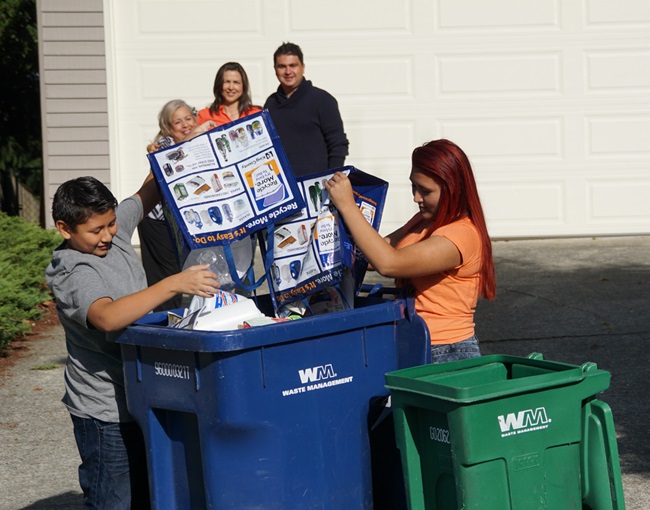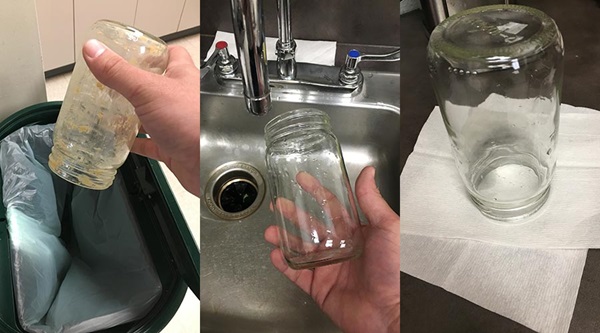How to recycle right
Learn best practices for recycling in King County.
Tips to recycle right
When you recycle you give a new purpose to items that would otherwise become waste. That has far-reaching benefits for both the environment and economy. It reduces the need to extract raw materials, conserves energy, and reduces pollution. The best way to help recycling thrive is by only putting accepted, clean items in your home recycling bin.
To ensure everything in your bin is recyclable, follow these tips on how to recycle right.

Empty, clean, and dry
Always wash out and dry your recyclables. Any leftover food or liquid can create mold, which ruins items and causes contamination. If you can’t get them clean, put them in the garbage.

Keep plastic bags out
Don’t put plastic bags or wraps in your recycling bin, even if they’re bundled. These flimsy plastics get tangled in equipment at recycling facilities. We offer free recycling drop-offs for plastic bags and wraps at our Shoreline and Bow Lake recycling and transfer stations.
If you can’t visit these locations, it’s best to reuse plastic bags or put them in the garbage.
Focus on the top 5
As long as they are empty, clean, and dry, you should always recycle:
- Paper: office, newspaper, and magazine
- Cardboard: paperboards and corrugated boxes
- Plastic: bottles, jugs, and tubs
- Glass: bottles and jars
- Metal: aluminum, tin, and steel cans
When in doubt, find out
Put only items accepted by your local area in your collection bin. If you’re unsure, check your city’s recycling guide. You can learn more about recycling in your area by selecting a city in the drop-down.
Still in doubt, throw it out
If you’re still uncertain where an item belongs, the best option is to throw it out. It may feel wrong, but it helps avoid contamination and other issues that happen when non-recyclables end up in the recycling.
Recycling and composting guide
Our visual recycling and composting guide is available in the following languages:
|
|
 Translate
Translate